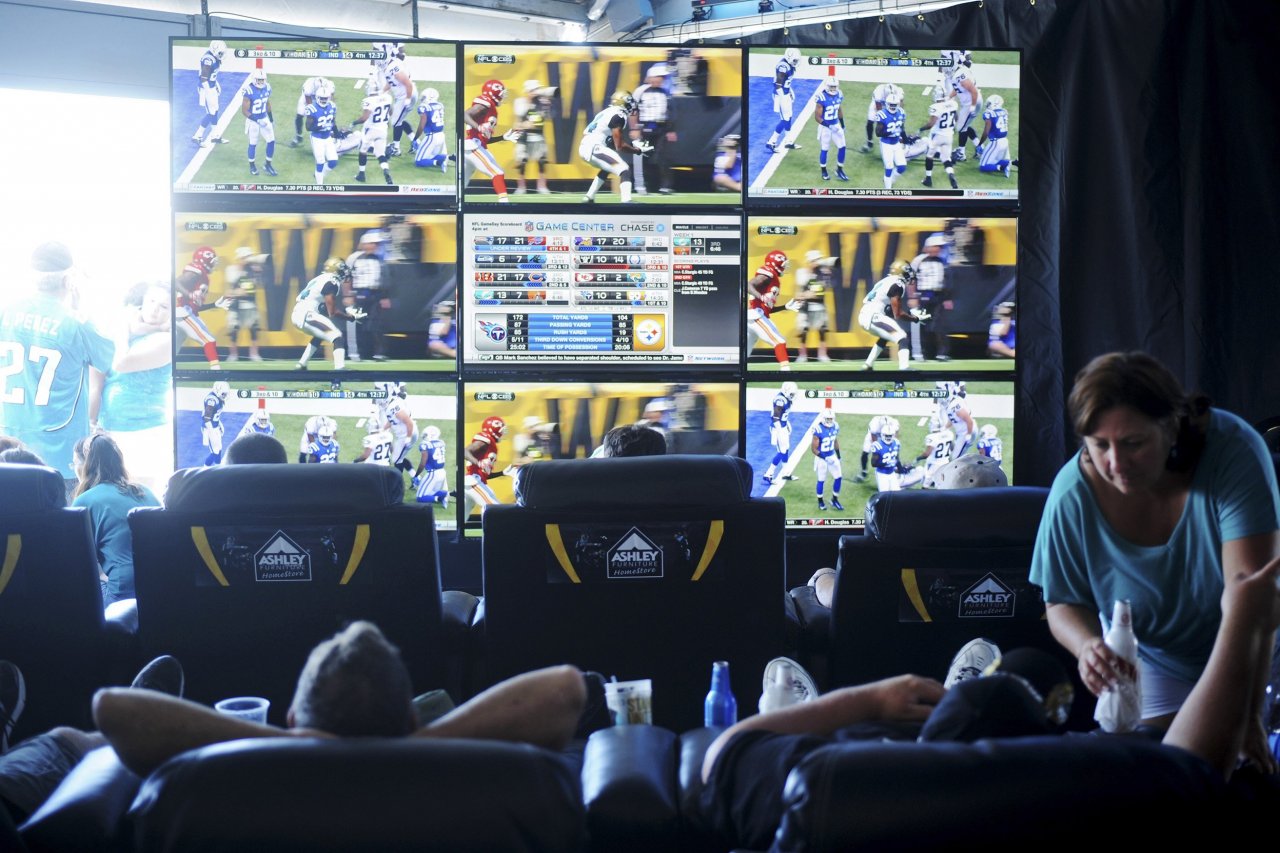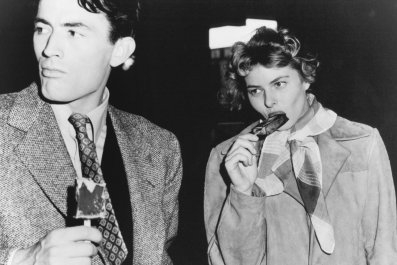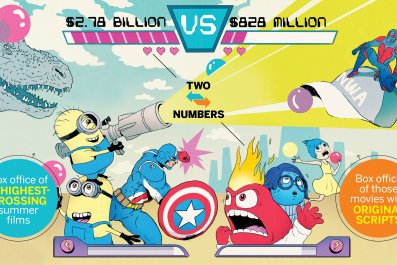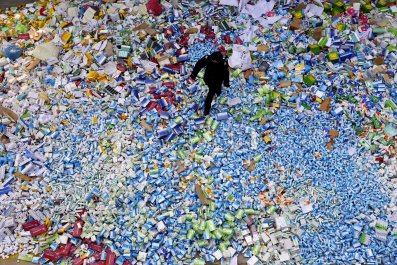The NFL and other professional sports leagues believe FanDuel and DraftKings are the most brilliant things to happen to fans since beer. Over time, though, these sites could alter the relationship between fans and teams in ways that might not be good for teams. The key will be an aspect of the sites that often gets overlooked: the flood of sports data they'll bring to the masses. We're talking mountains of data never before available to even the most ardent fantasy sports nuts.
We got a hint this summer about FanDuel's data-driven intentions when it bought numberFire, a startup that crunches data to predict how a player will perform in his or her next game. "Our ambitions have really broadened," FanDuel CEO Nigel Eccles told TechCrunch after the deal. "We've started to think of ourselves less as a fantasy sports business—we want to make sports more exciting."
But what "more exciting" means is different from what it used to mean. FanDuel isn't going to amp things up on the field or court or rink. Its mission is to make sports more exciting in our heads.
Let's back up a second, because a lot of people until recently hadn't even heard of daily fantasy sports, and then presumed it must be a frivolous game that unshaven men wearing sweatpants play on their phones while watching football all day.
Old-school fantasy sports leagues have been around for a long time. Millions of people play, but the appeal is limited because traditional fantasy leagues are major time commitments, lasting the whole season. For the NFL, you assemble a fantasy team of players from all across the league in August. Statistics for your chosen players pile up through the season, and you find out in January if you won your league.
Daily fantasy is a new animal, built on a combination of cloud-based technology on mobile phones and a loophole in gambling laws that allows for prize money in games that take more skill than luck. FanDuel and DraftKings let people use an app to pick a fantasy team on a Sunday morning for a one-day league. By Sunday night, you know if you won. Similar one-day leagues are offered for almost every major sport.
This kind of quick-and-easy sports fantasy game for money is luring millions of new players and aims to become as mass market as Candy Crush. FanDuel's revenue was $14 million in 2013, $57 million in 2014 and is expected to top $100 million this year. Sports leagues, teams and TV broadcasters love daily fantasy because they feel it gets fans more deeply involved. "The more people play, the more they consume our product on TV," Fox Sports President Eric Shanks told Re/code. So FanDuel's investors include NBC Sports, Comcast and Google, and its partners include the NBA and NFL teams like the Jacksonville Jaguars. DraftKings got funding from Fox Sports, Madison Square Garden and the NHL.
Now here's how the situation could spin in unpredictable ways. In fantasy sports, your team's score depends on how each individual player performs—with little to do with whether the real-life team won or lost. If you're a serious daily fantasy player, your interest is already leaning toward individual players, not teams.
Consider that FanDuel and DraftKings are rough versions of how they will work a few years from now. Today, you pick your fantasy team based on data that's not all that different from what's been available for decades. And that data can be pretty sparse, especially in football. So, for example, when you build a FanDuel team in football, you get to pick only a few key offensive players and, for defense, you pick a whole team's defense, because there's so little data about, say, a linebacker's performance.
The data part of the equation is changing fast. The NFL this season is putting sensors on players to measure things like speed and hits. A FanDuel user will have enough data on defensive players to accurately analyze individuals. We'll increasingly see inside the game as the data get more granular.
Keep in mind that the NFL is a data-laggard. The NBA and MLB have gone sensor crazy. They're collecting data about every micro-movement of players and ball. The NFL and every other kind of sport will eventually do the same.
Most fans today get their sports through a TV screen. They focus on a team first and their favorite players second. TV keeps sports at a distance, so we view the whole. Yet as the data-intensified game catches fire over the next few years, the interest of mass-market fans will increasingly become all about players' data. Teams will seem like a means to an end—a way for players to perform so they generate data.
The next generation of fans could end up thinking the term "favorite team" is as weird as something like "favorite record label." Instead, we'll be glued to individual players—or, more precisely, to the mountains of data that will be generated about every microsecond of every player's performance.
To take that to its extreme, we could arrive at a sports world where we don't even care what a player looks like; we'll just want to ogle his or her data.
The team thing has always been tribal—your city, your team and, for superfans, your identity. That gets complicated in a data-intense world where players matter more than teams. What happens in the stadium? What do people cheer for? Whose jerseys are in the gift shop?
And what kind of promotions does a team run? If we don't care what a player looks like, do we give a crap about his or her bobblehead? What replaces the bobblehead? Maybe it's a Dropbox file full of a favorite player's exclusive data.
But somehow, going to the stadium for Andrew Luck File-in-the-Cloud Day just doesn't seem the same.




















